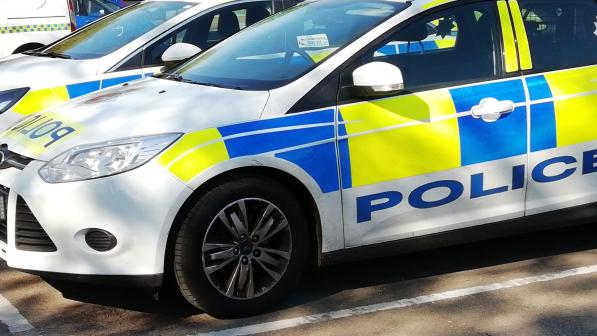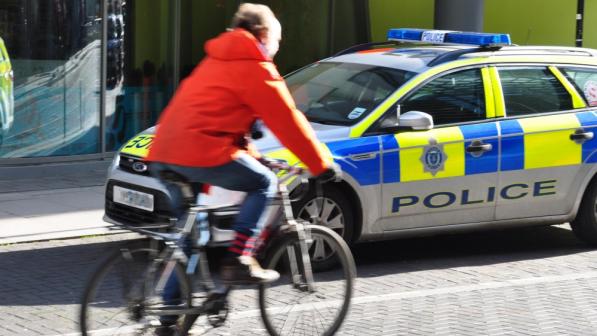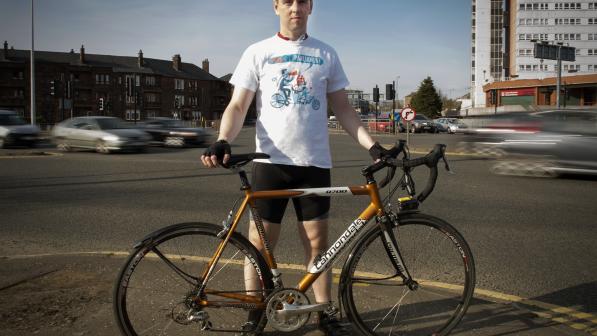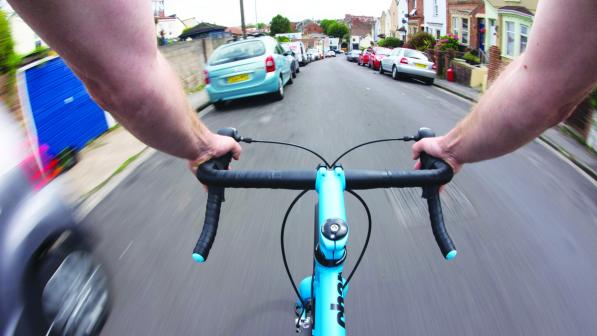Cycling UK backs manifesto to tackle road crime

If all goes to plan, the electorate in England and Wales will be invited to cast their votes for Police and Crime Commissioner (PCC) candidates in May this year. (Exceptions are Manchester and London, where mayors fullfil PCC duties).
The role of roads policing and PCCs
All road users depend heavily on the police both to enforce road traffic law, and to deter drivers from even thinking about committing a road crime in the first place.
There’s a better chance that police forces will do this effectively, however, if they’re given a bright green light from those who set their priorities: PCCs, in other words.
So, since the commissioners were first elected in 2012, Cycling UK has called on all of them to put roads policing high on their agenda.
Time to act
Although the health benefits of cycling far outweigh the risks, cyclists are at disproportionate threat from bad driving. We also know that around two-thirds of the population aged 16+ agree/strongly agree that it is too dangerous for them to cycle on the roads.
None of this is good news for governmental ambitions to see considerably more people travelling actively.
But stronger roads policing could make all the difference, and there’s no finer time to point this out than in the run-up to PCC elections, when minds are focusing on attracting votes, change and, indeed, on manifestos.
This is why Cycling UK has welcomed the opportunity this year to join forces with Action Vision Zero on its 2021 Police and Crime Commissioner Manifesto, urging candidates to commit to tackling road crime not only because it’s a threat to life, but also because it’s antisocial, and damages health and the environment.
What does the manifesto ask for?
The manifesto asks PCC hopefuls to sign up to five commitments:
1. Make road danger reduction a priority
2. Tackle speeding (the greatest threat)
3. Be transparent and accountable
4. Work with your community
5. Improve the post-crash response.
Times have changed and so should roads policing. Active travel is being promoted and is increasing, particularly in the time of coronavirus, but this needs to be better supported by the police
2021 Police and Crime Commissioner Manifesto, Action Vision Zero
Why Cycling UK backs the manifesto
The manifesto’s five asks, and the individual steps it sets out to achieve them, will resonate with many road users, especially anyone who travels on foot or by bike; and even more so, arguably, with those who’ve fallen victim to bad driving, speeding, or a missing/opaque/dismaying response from the police that’s foxed or, in the worst cases, outraged them.
Only recently, Cycling UK spotlighted how little faith there is among all too many cyclists that the police will pursue blatant acts of dangerous driving caught on handlebar or helmet cams for everyone to see.
We don’t want failings like this to go on being part of the scene or, for that matter, for the police to fail any victim ever again in any way at all.
What’s more, we don’t want any road traffic victims whatsoever in the longer term. Adopting the Vision Zero approach – or a refusal to accept the idea that death and serious injury are an inevitable part of the road system and its use – is step one of the manifesto’s first commitment: ‘Make road danger a priority’.
We’re not alone in seeing PCCs as pivotal here: 20s Plenty, RoadPeace, British Cycling, Living Streets, Sustrans and the Road Reduction Forum are all backing this manifesto, too.
Getting involved
Combining our voices this year will augment the case Cycling UK has been making for years, so please do get involved with Action Vision Zero’s collaborative campaign.
It launches this evening (21 January at 5pm), with a free webinar.
Let’s leave no potential PCC in any doubt that tackling road crime is a vote winner.






